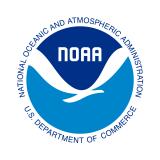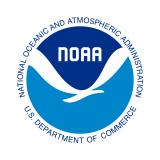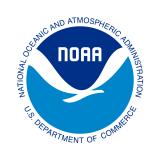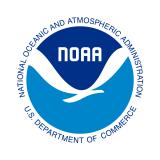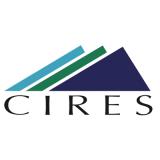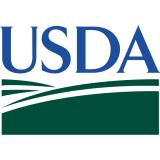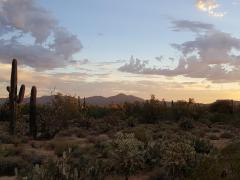NIDIS and Partners Chair AMS Sessions on Drought and Climate Science
The American Meteorological Society is hosting its 103rd annual meeting on January 8–12, 2023, in Denver, Colorado. This year, the meeting will focus on the theme, "Data: Driving Science. Informing Decisions. Enriching Humanity.”
The National Integrated Drought Information System (NIDIS) and its partners are excited to co-chair several sessions related to drought analysis and prediction, flash drought, service delivery lessons, and translating climate science into action. The call for abstracts is now open, and abstract submissions for most sessions are due by August 24, 2022.
Explore select sessions from NIDIS and partners below, or view all conference sessions on the AMS website.
Advancements in Analysis and Prediction of Drought
37th Conference on Hydrology
Session Chairs: Molly Woloszyn, NOAA/NIDIS, Cooperative Institute for Research in Environmental Sciences (CIRES); Joshua Roundy, University of Kansas; Guiling Wang, University of Connecticut
This session requests submissions on topics including, but not limited, to “current drought prediction science and skills at various lead times; advances in our understanding of the causes and characteristics of drought and impacts of land-atmosphere interactions, through data analyses and numerical modeling; innovative management uses of that science; and case studies illustrating advances in understanding, monitoring and prediction of drought and drought impacts.”
Compounding and Cascading Causes and Effects of Flash Drought
37th Conference on Hydrology
Session Chairs: Andrew Hoell, NOAA/Physical Sciences Laboratory; Mike Hobbins, NOAA, CIRES; Jason A. Otkin, University of Wisconsin; Hailan Wang, NOAA/Climate Prediction Center; Mahmoud Osman, Johns Hopkins
This session invites submissions that “leverage vast and rich observed analyses and model simulations to advance our ability to monitor, understand, and accurately predict the complex interactions between terrestrial, atmospheric, and oceanic processes that can be used to anticipate the effects and improve early warning of flash droughts.”
Service Delivery: Lessons and Examples of Connecting Users to Agile Product Development and Impactful Decision-Making
27th Conference on Applied Climatology
Session Chairs: Meredith Muth, NOAA/NIDIS; Ellen Mecray, Regional Climate Services Director, NOAA/National Centers for Environmental Information
This session requests “examples of projects and programs that have demonstrated success moving lessons from user engagement into agile product development, and ultimately have social science metrics that evaluate the impact of those services on the end-user. “ This includes “examples and lessons learned, including approaches for overcoming barriers, from effective and continuous user engagement; product and service development that incorporates end-user information needs and feedback; and/or social science metrics on customer experience and decision-making using co-developed products.”
Translating Climate Science into Action with the USDA Climate Hubs
18th Symposium on Societal Applications: Policy, Research and Practice
Session Chair: Julian Reyes, National Climate Hubs Coordinator, Office of the Chief Economist, U.S. Department of Agriculture
This session “will demonstrate the Climate Hub’s significant efforts in the co-production of data syntheses, assessments, tools, educational products, and peer-to-peer learning networks working alongside stakeholders to address their concerns and needs. The session will share how the Climate Hubs can help build connections between the meteorological community and the wide range of agricultural stakeholders through climate services.”


